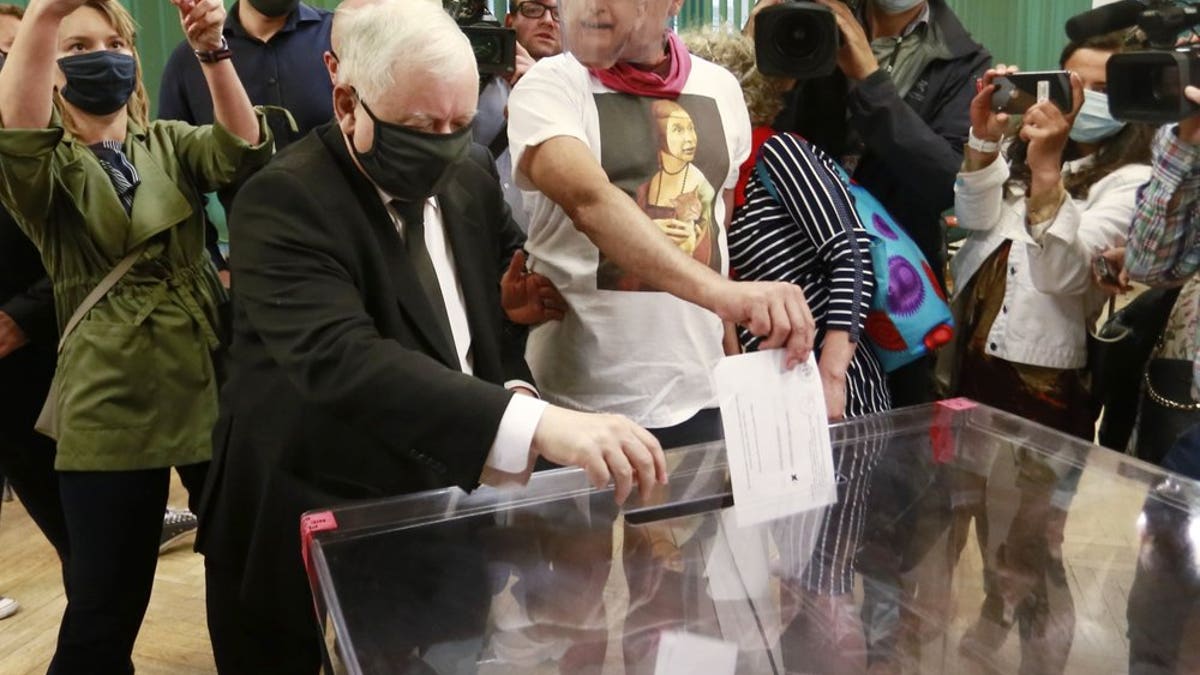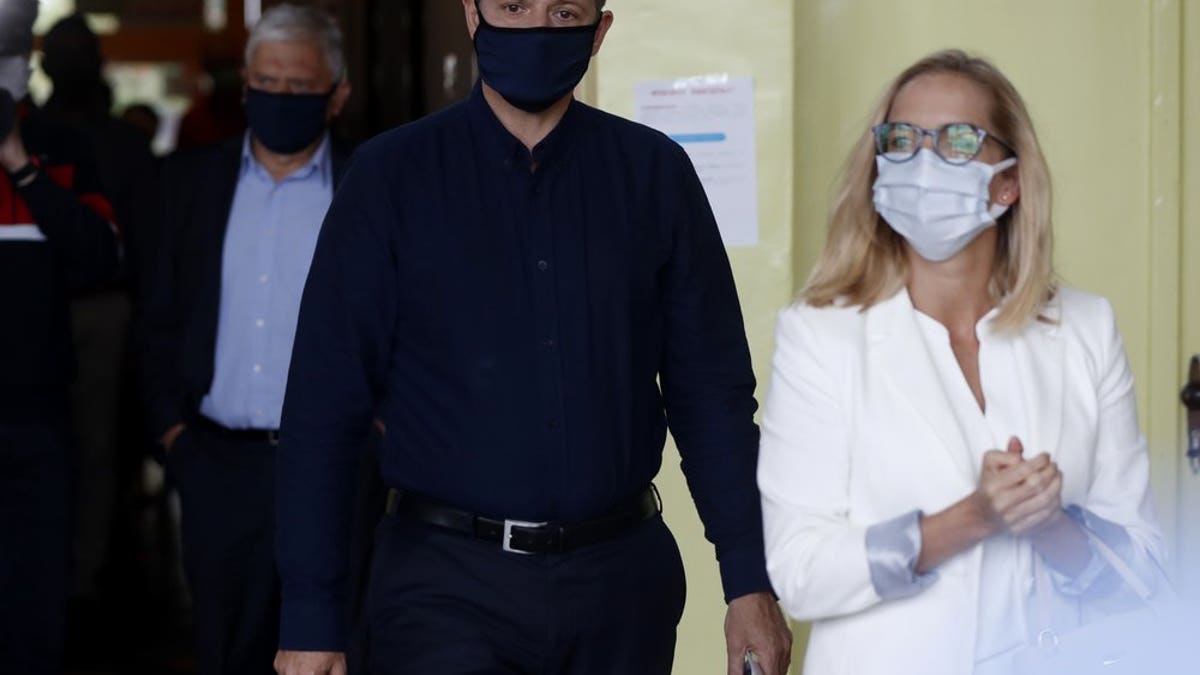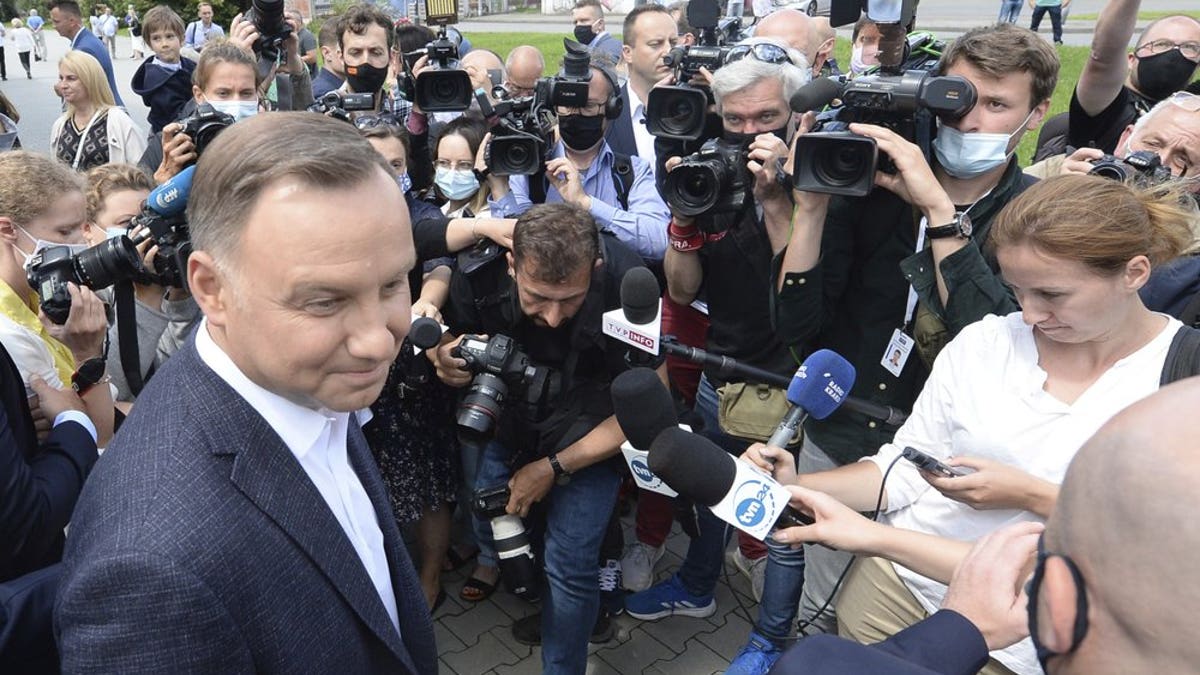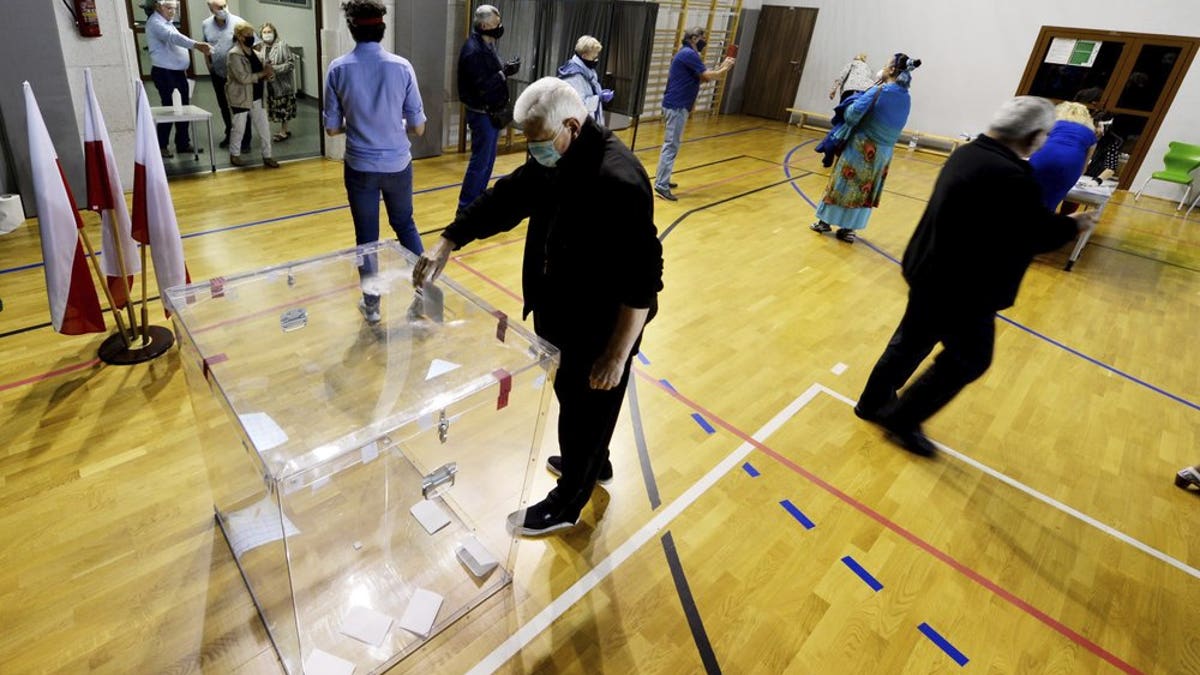Fox News Flash top headlines for July 12
Fox News Flash top headlines are here. Check out what's clicking on Foxnews.com.
Exit polling shows that Poland’s presidential runoff election is too close to call.
The battle between the conservative, populist incumbent President Andrzej Duda and the liberal, pro-Europe mayor of Warsaw Rafal Trzaskowski is down to less than a 1 percent difference, with Duda holding 50.4 percent to Trzaskowski’s 49.6 percent of the votes. The Ipsos Institute, which conducted the exit poll, said Sunday the difference is within the margin of error, meaning it’s not yet possible to say who won.
Turnout for the election was 52.1 percent, up 4 points from the first round of voting on June 28, the State Electoral Commission said. The election was planned for May but health concerns amid the coronavirus pandemic prompted the delay.

Leader of Poland's right-wing ruling party Jaroslaw Kaczynski, left, wearing a face mask for protection against the coronavirus, casts his ballot in the presidential election runoff in Warsaw, Poland, on Sunday, July 12, 2020, next to a man wearing a face mask of Kaczynski's likeness. The ruling Law and Justice party is backing the reelection bid of incumbent conservative President Andrzej Duda, against the liberal Warsaw Mayor Rafal Trzaskowski. Latest opinion polls suggested that the runoff will be decided by a very narrow margin. (AP Photo)
“This is a civic duty but also a privilege because this is a very important election,” Trzaskowski said after voting. “I hope the turnout will really be high.”

Presidential candidate Rafal Trzaskowski accompanied by his wife Malgorzata arrives to cast his vote during the presidential election runoff in Rybnik, Poland, Sunday, July 12, 2020. Voting started Sunday in Poland's razor-blade-close presidential election runoff between the conservative incumbent Andrzej Duda and liberal, pro-European Union Warsaw Mayor Rafal Trzaskowski. (AP Photo/Petr David Josek)
The first round of voting saw Duda win 43.5 percent to Trzaskowski’s 30.5 percent of the votes, but the winner must have a simple majority to win.
The result will determine which one of two starkly different paths Poland might follow over the next few years.

Candidate in Poland's tight presidential election runoff, incumbent President Andrzej Duda talks to reporters after having cast his ballot at a polling station in his hometown of Krakow, Poland, on Sunday, July 12, 2020. Conservative Duda is running against liberal Warsaw Mayor Rafal Trzaskowski and latest opinion polls suggest the race will be decided by a very narrow margin. (AP Photo/Czarek Sokolowski)
If reelected, Duda’s right-wing Law and Justice Party will be able to maintain its hold on almost all key instruments of power in the nation. A win for the challenger would see him in power to veto laws pushed through by the conservatives and help ease tensions with European officials.
“We should vote because otherwise we have no right to complain about our politics,” said Eugeniusz Kowalski, 67, a retired office clerk, after voting in Warsaw.

Voters cast their ballots shortly after polling stations open in Poland's tight presidential election runoff between conservative incumbent President Andrzej Duda and liberal Warsaw Mayor Rafal Trzaskowski, in Lomianki, near Warsaw, Poland, on Sunday, July 12, 2020. Latest polls showed that the race may be decided by a very small margin. (AP Photo/Czarek Sokolowski)
Duda and his party won popularity through a welfare program that improved the lives of many impoverished families, particularly those with children and retirees, but they have also drawn criticism from European Union (EU) leaders for supposedly using political influence on the justice system and media in Poland, all while deepening rifts on urban liberals and the LGBT community.
CLICK HERE TO GET THE FOX NEWS APP
Trzaskowski vowed to close the social rifts and to continue the benefits policy. His support is strongest in larger cities and among more highly educated people.
The Associated Press contributed to this report.









































